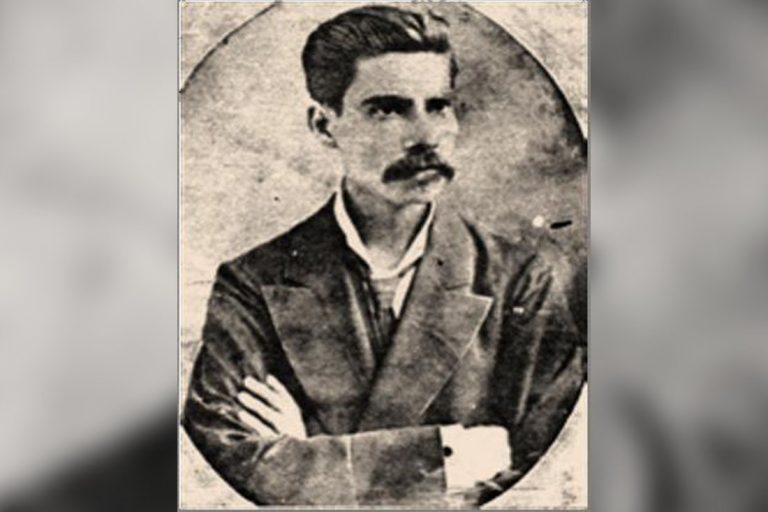Many people from Camagüey, including myself, when hearing the name of Esteban Borrero Echeverría, we think of a teacher, since a secondary school belonging to the Ciudad Escolar, near the maternal hospital, bears his name.
Looking for information about this Cuban, who is on the list of the best children of Cuba, I discovered an outstanding patriot, educator, doctor and poet.
Its roots
Esteban Borrero Echeverría, was born in Camagüey on June 26th, 1849. At only 14 years old, he began to work in the Engineers Command of Puerto Príncipe, since his father sympathized with the causes for the freedom of the island; he was accused of being a separatist and forced to emigrate.
His mother to support the family begins to teach at home hence his inclination as an educator. Soon after, he founds a night school for adults, attended by black and white people. This constitutes an element that allows us to understand how Esteban Borrero’s inclination towards human freedom is glimpsed early on.
The patriot and educator
With the previous foundations, Esteban Borrero Echeverría soon joined the independence struggle that began in 1868. Together with his mother, who accompanies him in the redemptive battlefield, he created two schools for the improvement of the insurgents.
Thus he was seconded by his disciples, incorporated into the Ten Years’ War. His injuries in combat supported his promotion to the rank of Commander of the Liberation Army. “I was a soldier of patriotic conviction,” he said at the time. But he fell ill, was taken prisoner and was confined to his native Camagüey.
The Spanish authorities prohibit Borrero from working as a teacher and decide to send him to the Isle of Pine. But Esteban manages to stay in Havana, where he begins another important stage in his life.
As a doctor
His vocation for medicine led him to become a graduate in this branch of knowledge, as well as a surgeon. On his merits, he obtained a position as a municipal doctor in Puente Grande, where he went to live with his wife Consuelo Piedra Agüero. Meanwhile, at the end of the Great War in 1878, he becomes a poet, thanks to his father influence.
Despite his good reputation as a physician, Borrero wants the freedom of his homeland more. Thus, although he could not physically join the war prepared by José Martí, he left for Florida as an exile and from there he continued to contribute to the independence of Cuba.
In exile, his family contributes to the independence cause by sewing clothes for the Mambises and collecting funds for the Revolution of ’95, while Esteban Borrero revalidated his medical degree, served as a teacher and paid tribute to the cause of freedom in Cuba.
The writer
Although many of his texts appear in newspapers and magazines in Havana at the beginning of the last century, his poetry “De lo más íntimo“, attests to his convictions: “And I will continue to the end / I will not turn my back on duty / When the fight has already begun / until the end is the way”.
Esteban Borrero Echeverría is appointed extraordinary delegate of the Republic of Cuba in Arms in Costa Rica and El Salvador, and minister of the Revolutionary Government in Central America. Simultaneously, he is a professor in San José, Costa Rica.
After the war ended, in 1899 his book “Lecturas de Pascuas” saw the light and later published other works of marked ethical value. Faced with the course of the Neocolonia, he divulges “The Enchanted Deer”, in which Cuba is seen threatened by Yankee imperialism.
Along with Enrique José Varona, Esteban Borrero is involved in the improvement of public education. Then, he writes “The friend of children”, which for a long time was a reading text for Primary Education. He reached the status of professor at the School of Pedagogy of the University of Havana, standing out as a higher-level professor.
We recapitulate
Esteban Borrero Echeverría from Camagüey was an outstanding patriot and educator, doctor and poet. A school on the Central Highway reminds us of its name and invites us to search in its texts for all that it bequeathed to us about the importance of independence, the honor of men, and above all, the value of teaching to conquer true freedom: that of spirit.
Translated by: Aileen Álvarez García






